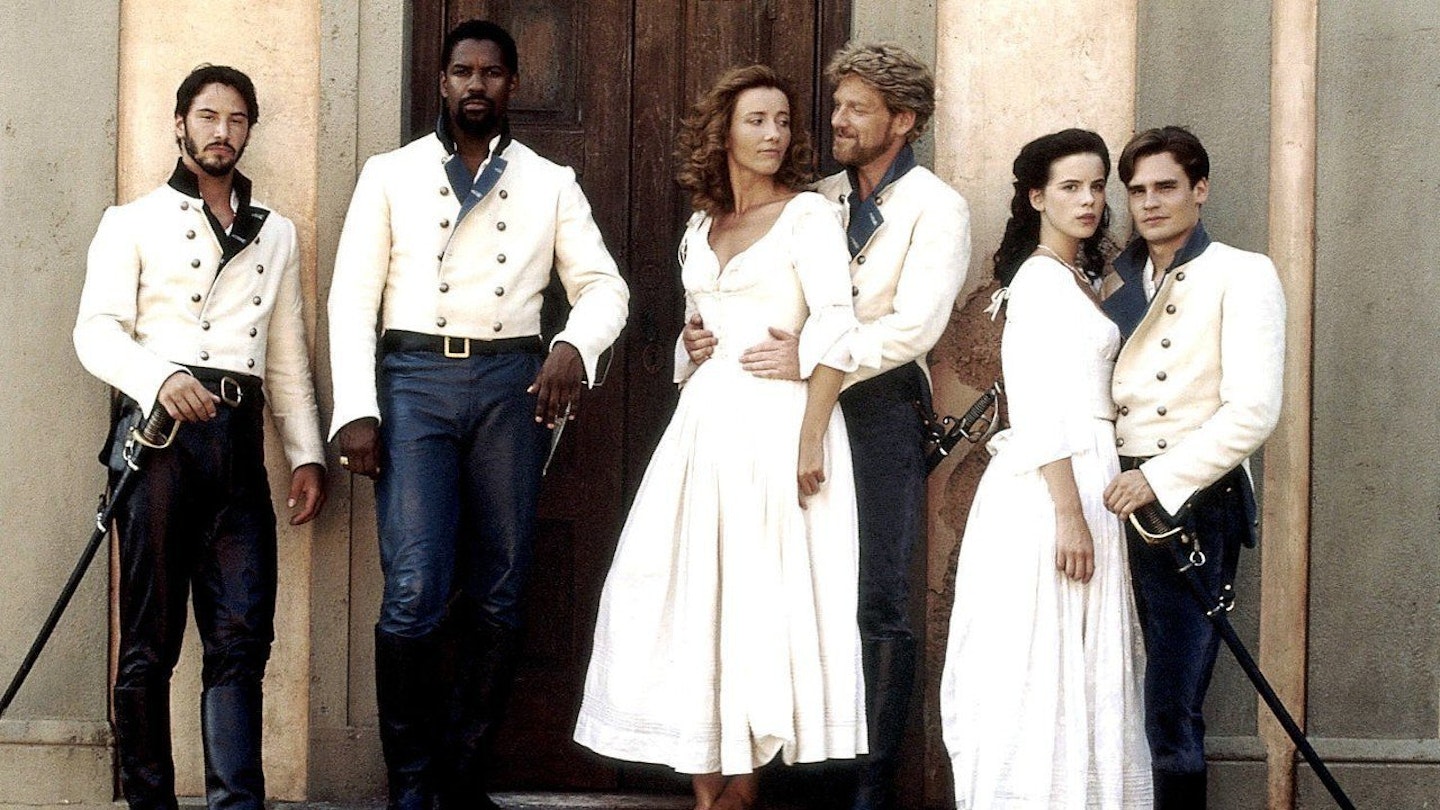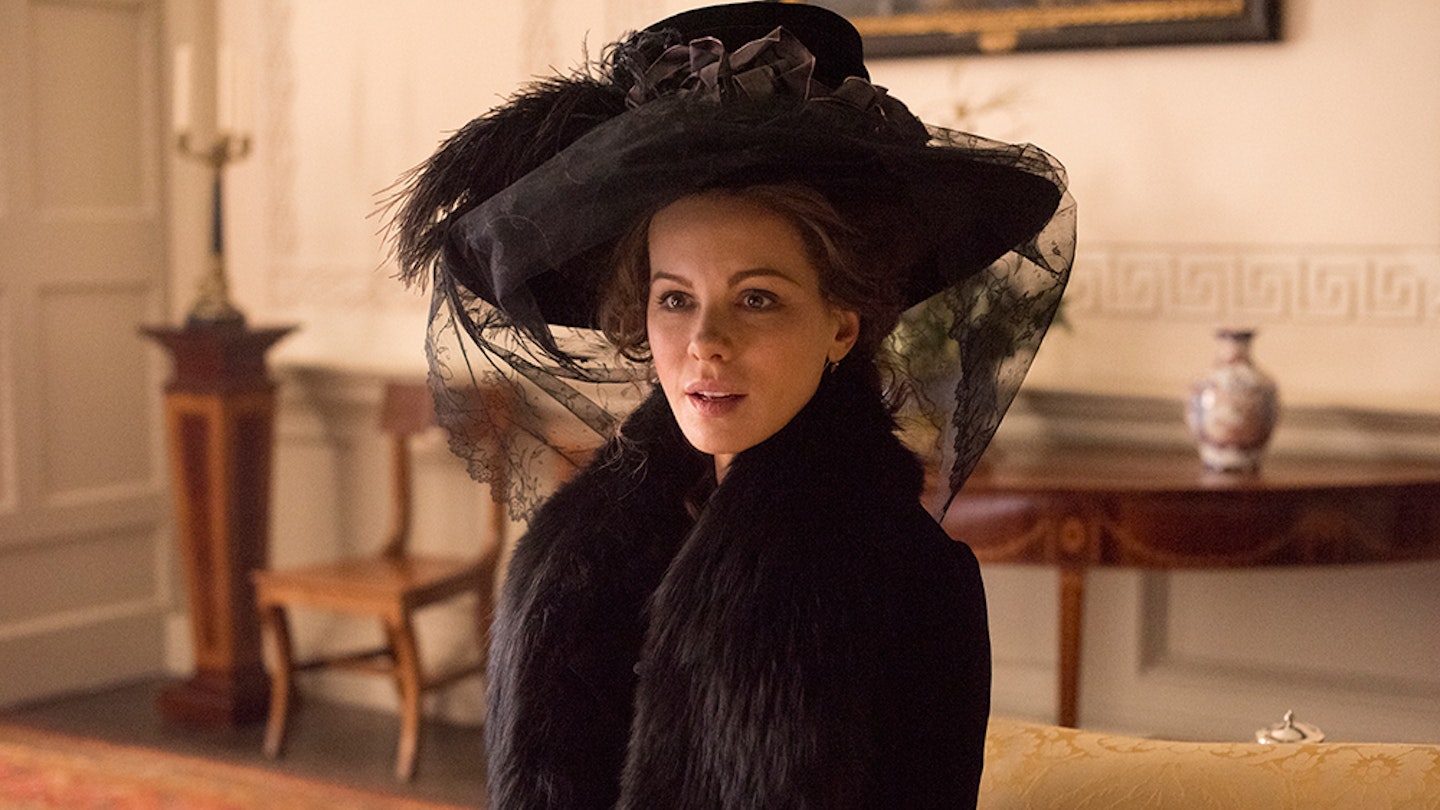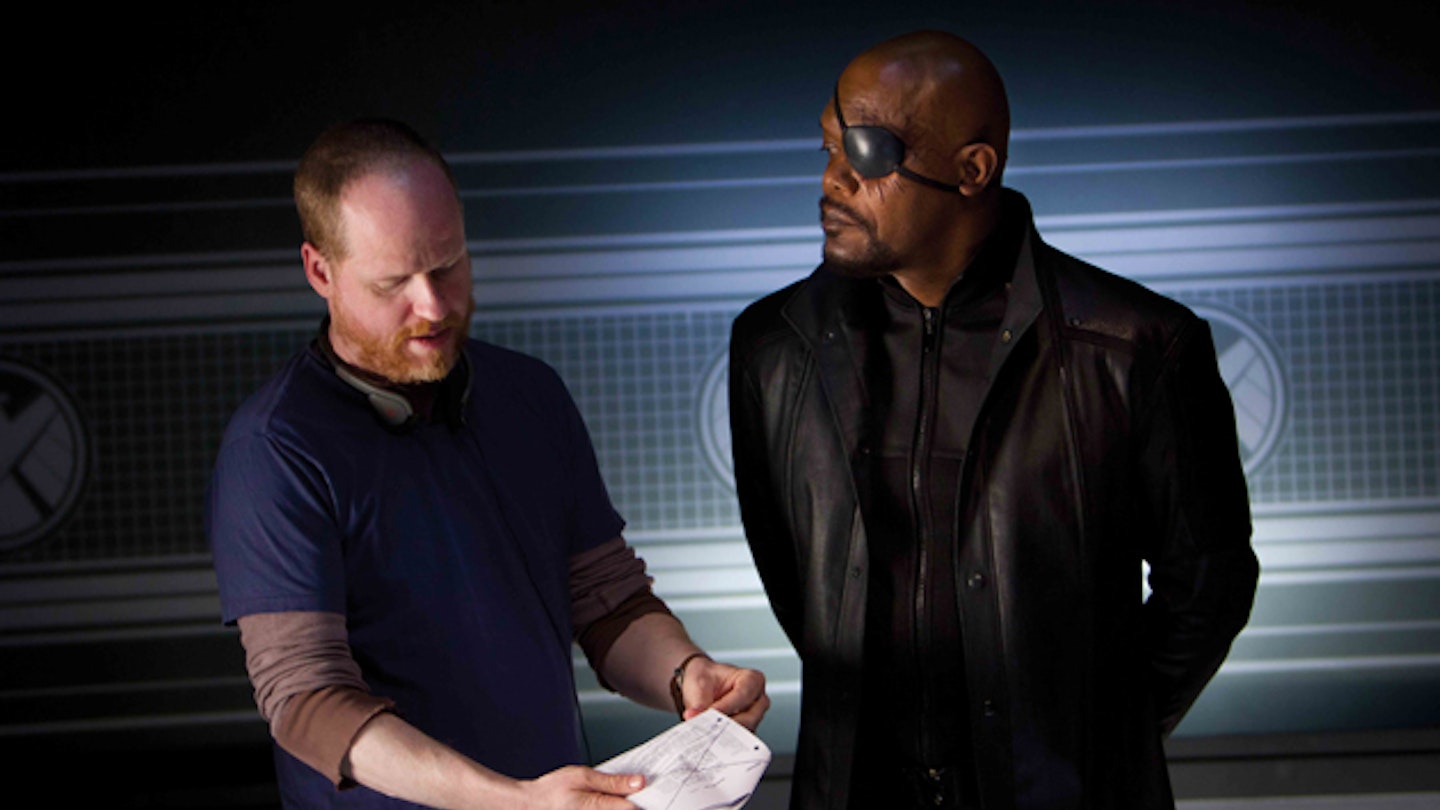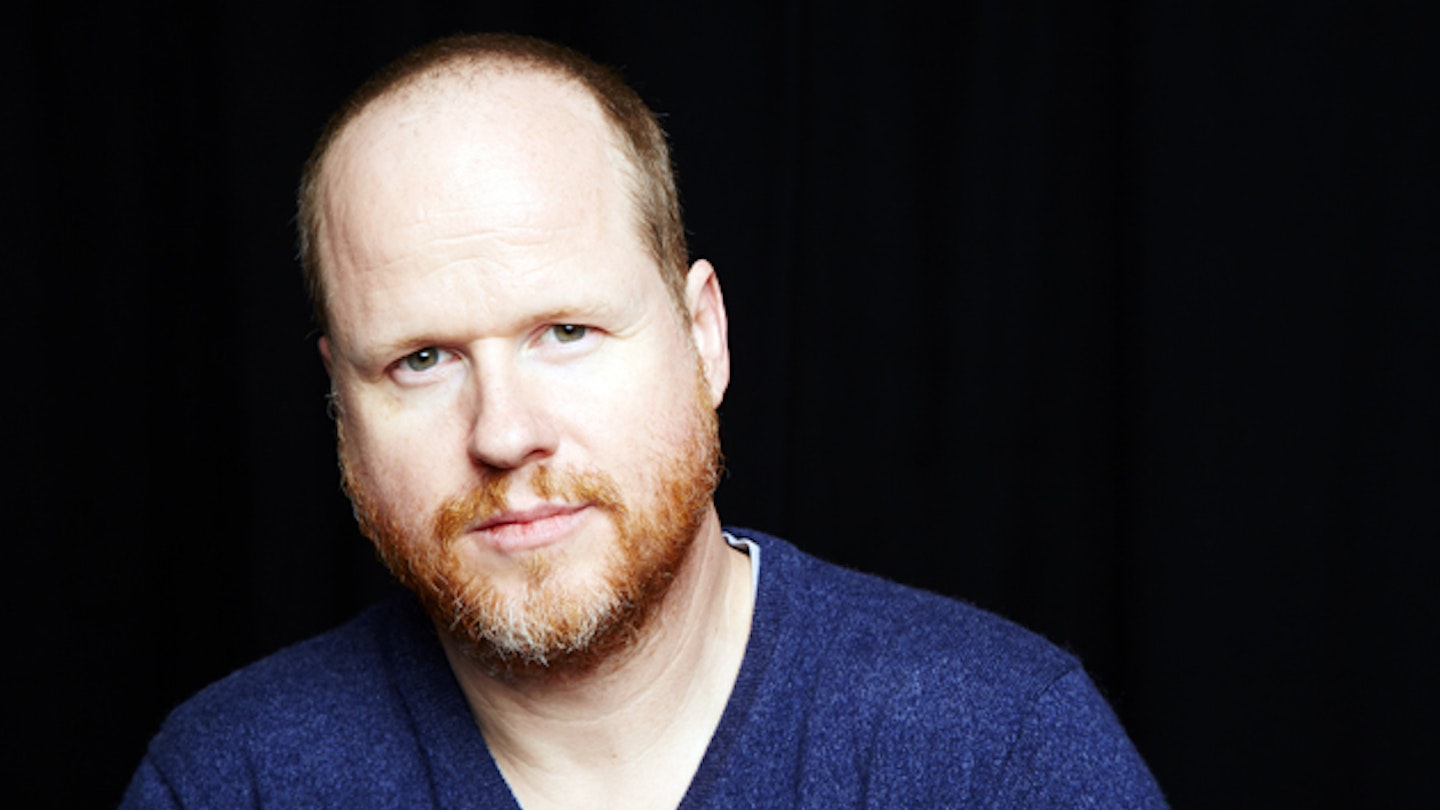Critics of Kenneth Branagh eager to see the boy wonder fall on his face had to wait just a little bit longer (until the disaster that was Mary Shelleys Frankenstein) as his fourth feature, and second Shakespearean screen adaptation, revealed itself as a delightful bit of fun and a starry crowd-pleaser.
Much Ado is arguably Shakespeare's wittiest comedy, dealing as it does with the feigned antipathy of its talkative, bantering protagonists, confirmed bachelor Benedick and spirited Beatrice, whose real love for each other is joyfully exposed by the ingenious match-making of their cronies.
Around and between these two, a hectic whirl of courting, conniving and clowning takes place as Don Pedro, Prince of Aragon (Washington, dandy down to his leather trousers) energetically promotes his comrades' happiness; his jealous bastard brother Don John (Reeves permanently a'glowering) broods and plots; wan young drip Claudio (Leonard) falls in and out and back in lurve; and the famously inarticulate local constable Dogberry (a very funny, quirky Keaton twinned with stooge Ben Elton) bumbles upon the truth behind a despicable deed that threatens to undo all.
Branagh has deposited his production on a lovely Tuscan estate where the delicious repartee and romping unfold as a suitably sunny summer idyll, with ideas borrowed as much from Hollywood adventures as from theatrical tradition, from the gallants' arrival galloping into shot like something from The Magnificent Seven, to the lovestruck Benedick stomping about in a fountain like Genes Kelly or Wilder.
Emma T. reaffirms her brilliance as an actress who can declaim "Hey nonny nonny" without appearing even the teensiest bit inane, and if occasionally the full-blooded cast (which includes Branagh's theatre colleagues Richard Briers, Brian Blessed, Imelda Staunton and then ingenue Kate Beckinsale) threaten to run riot, the quieter episodes of love declared, sinister scheming or near-tragedy mercifully cool their jets.
Be assured that any previous acquaintance with the play is unnecessary, since Branagh's forte in Shakespeare is, of course, to emphasise the sense, and he has done so here with charming playfulness and an exuberant ensemble. The result is wonderfully unrestrained, romantic and funny.





